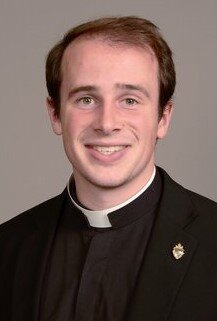Sixth Sunday of Lent -- Palm Sunday
In our Church’s, and even in our nation’s, recent reflections on racism, there’s so many chances to look at those around us, to scream and shout, to point fingers, to judge who must be ostracized or crucified, or to utter that ultimate condemnation of “racist.”
For a society that often looks back upon the medieval Church with scorn for its willingness to judge someone as excommunicate, it sure isn’t shy of doing it itself. After all, why work to reconcile, to reform our hearts and to draw and invite others to do the same, when its so much easier to take this group of people and label them “good” and take this other group of people and label them “bad”? Who are the elect, who need no saving, and who are the damned, beyond power of redemption? But are there “bad people” who can accidentally stumble into some area of moral rectitude? Or are there “good people” who are strong on all counts…except one or two?
As a thought experiment, I offer you what we encounter in today’s readings: The people of Jerusalem, the crowd who, without discourse or reason, only screaming, shouted again and again, “Crucify him!” is undistinguished from crowd who days earlier shouted of the same Man, “Hosanna! Blessed is He!” It was the same populous, whom the chief priests feared would rise up in civil unrest if they moved to arrest Jesus, that Pilot also feared would rise up in revolt if he did not condemn the same Man to a horrific death.
Was it the authorities or government, rather than the common man, more guilty or responsible for this injustice? By the crowd’s shouting, clearly not and yet the ones entrusted with the ordering of society failed just as much in their condemnation of the only truly innocent Man to ever be.
Perhaps we can lay our moral distinction of “good people” and “bad people” between the poor of the city and the wealthy? Sorry to disappoint any large-bearded German political theorists, but no such distinction is tenable: some of the most destitute, with nothing to left to lose, those poor criminals crucified at Christ’s sides, hardly had a moral high ground as they continually abused the one who loved them most, while it was a wealthy man of the city, who gave much and risked all to insure that an innocent Man might at least have a decent burial.
In our attempts to determine who is “good” and who is “bad,” we can sit around, echoing the apostles at the Last Supper, asking or stating, “Surely, it is not I?” as if Jesus had said, “Amen, I say to you, one of you is a racist,” instead of “one of you will betray me.” Yes, one of them would indeed betray Him, but who of those apostles had remained by their master’s side by the time that night was through?
In these Scriptures, we can see how our modern, moral categories fall short of reality. There were no “good people” and “bad people,” by our unforgiving standards, in Jerusalem on that original Holy Week, but every single person in that city (except Mary, of course) was a sinner who had failed to love their God and their fellow man and was deeply in need of salvation.
None of their sins were so innocuous as to not require redemption through Christ and none were so grave as to be beyond His power to redeem. So the same for us. That is the message of Palm Sunday: that all of mankind, from the greatest to the least, are in desperate need of repentance, in need of forgiveness, in need of conversion, and in need of the grace of God by which their hearts might be opened wide to the love of their God and their neighbor without condition, hesitation, or reservation.
Families:
Pick one reading from this weekend (available here) and read through it together (before or after Mass)
Ask your children if they have any vocabulary questions. If there is a place name mentioned consider looking it up on a map (google maps is great!) and ask older children to briefly re-tell the story to see if they understood the basics of the message/reading.
As a family do the “thought experiment” Fr. James suggests. Or place yourself as a refugee at the US border. Or as someone who has a racist slur hurled at them by a stranger out in public. Or as someone who cannot afford groceries for the week. What are some of the reactions you or your children feel? What can we do, as ‘everyday Catholics’ to seek the end of injustices against the dignity of every human?


